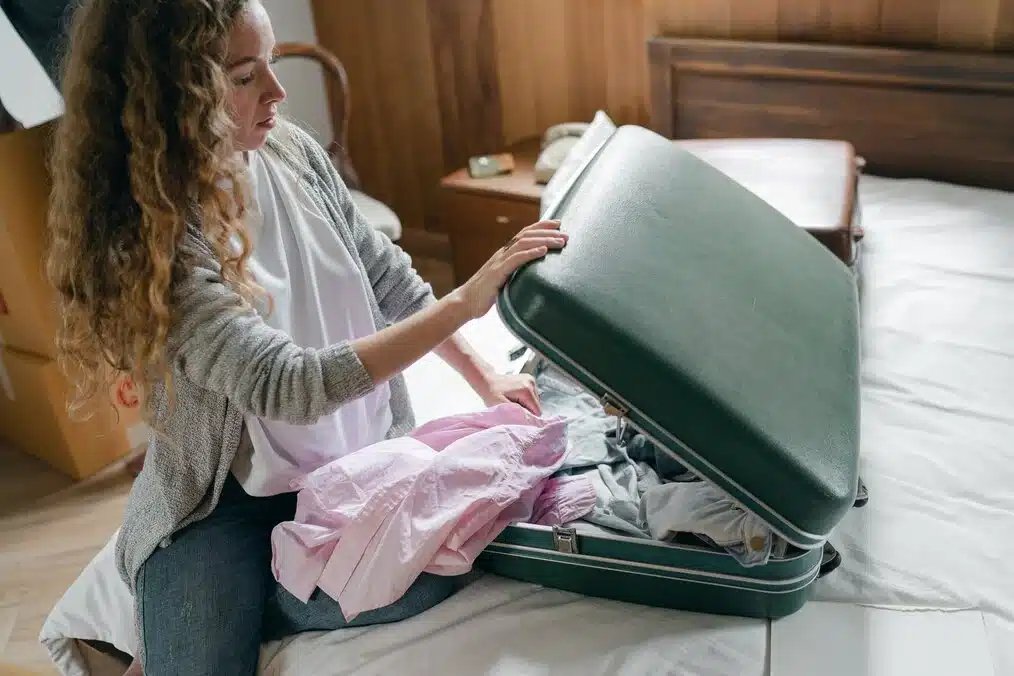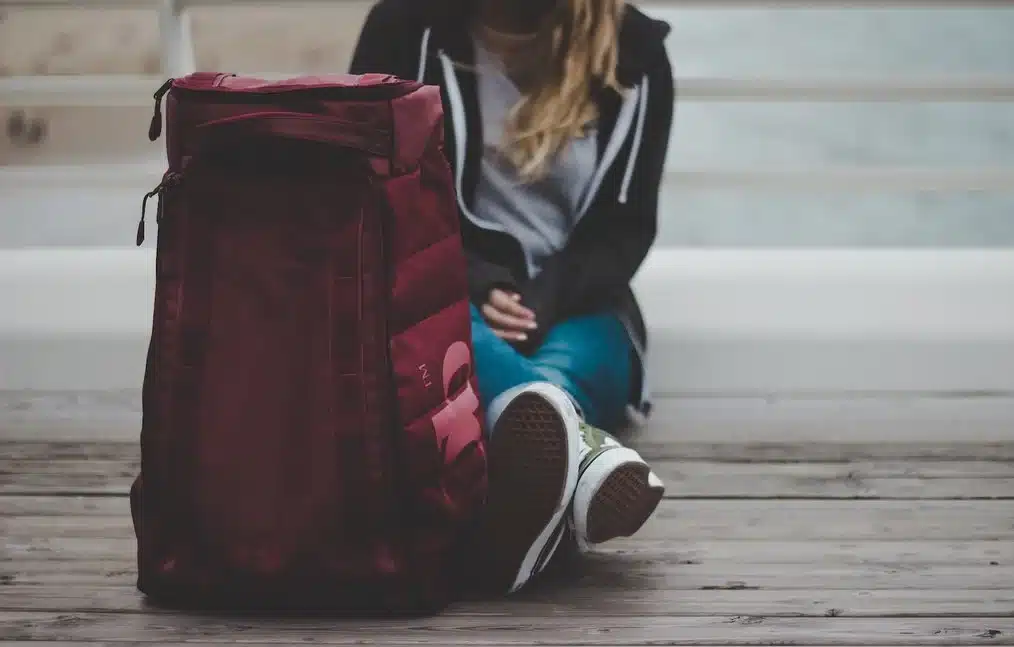The Ultimate Study Abroad Packing List
More than 4.3 million college students take their education abroad each year, eager to explore the world while learning new skills and cultures. The high statistics are attributable to the numerous benefits such as gaining a new perspective on life, language skills, and increased employability. Students must be appropriately prepared with the right items to get an ideal learning environment.
Items like clothing, medical supplies, and travel accessories can ease the transition to a different environment. You can also consider miscellaneous items such as books, music, and electronics which can help make your experience abroad more enjoyable.
To help you get started, here’s the ultimate study abroad packing checklist.
What to Pack for Studying Abroad
Selecting what to pack when traveling abroad can be daunting, especially if you are traveling for the first time. To ease your packing process, you can consider the three classifications of items that should be included in your packing list.

The Essential: Must-Haves
As you travel to a host country, bringing basic items that can make your experience more comfortable is essential. The must-have items can help ease your traveling in the country, whether traveling on a budget or not.
Here are some of the essential items for your study abroad packing list:
1. Passport / Visa Travel Documents
Crossing international boundaries requires you to carry valid travel documents such as a passport, or visa (where applicable). You may have applied for the documents earlier or need a visa before traveling. It is essential to ensure that the documents are valid and up-to-date.
You can visit your embassy before traveling for more information on the travel documents needed for your destination country. The agents can help guide you through the visa application process and other requirements.
2. Money/ Financial Documents:
Financial planning is vital when studying abroad as you need to purchase tickets, book accommodation, and cater for other travel-related expenses. You can carry documents such as cash, cards, or traveler’s checks.
Credit cards provide a convenient way to pay for goods and services while credit cards, in combination with ATM cards, can help withdraw cash when needed. It is also essential to have other financial documents, such as insurance policies and proof of residency.
When traveling, you can carry local currencies because some countries may not accept foreign currency. Additionally, you can use online banking services, especially if your home bank has international partner branches in the country you are traveling to.
3. Health and Safety Items
Everyone’s health should be the priority when studying abroad. It can help reduce the risk of diseases and illnesses in a new environment due to allergies, food sensitivities, or other health-related issues.
It is essential to pack your medication and vitamins when traveling abroad. Consider carrying a first-aid kit, as it can help in emergencies. Safety items such as a whistle, flashlight, or personal alarm can also be useful during late-night activities.
If you have chronic diseases such as diabetes, asthma, and allergies, it is vital to carry a doctor-signed note that explains your condition. You can also pack a self-defense item, such as pepper spray, especially if your destination is unsafe.
4. Power Adapters and Chargers
Electronic devices such as phones, laptops, and tablets have become essential daily. Each country has its power outlet type, so it is important to pack the right power adapter for your devices.
It is also essential to bring extra batteries and external chargers, which can come in handy when using these devices. You can also consider packing a surge protector to protect your electronic devices from power surges.
If you are packing items such as cameras and GoPros, remember to pack the right cables and adaptors for easy charging. You can also consider packing a power bank, as it can help to keep your devices at full charge when away from a power outlet. Packing several earphones is also crucial, as it can come in handy when listening to music, podcasts, and audiobooks.
5. Personal Hygiene Items
Even when traveling, it is essential to ensure hygiene levels are maintained. Packing personal hygiene items such as toothpaste, soap, shampoo, and a toothbrush is vital. You can also carry other items like deodorant, nail clippers, and facial wipes.
If you wear glasses or contact lenses, it is crucial to carry a spare pair in case you lose or damage the ones you are currently wearing. You should also consider packing items such as a fragrance-free laundry detergent, a reusable water bottle, and moisturizer.
If your skin reacts to sun exposure, packing items such as sunscreen and after-sun lotions is essential. You can also pack insect repellent to protect yourself from insect-borne diseases. Women should also pack sanitary napkins/tampons, facial scrubs, and face wash.
6. Basic School Supplies
Since you are going to study abroad, it is important to ensure you have all the necessary school supplies. It is important to pack paper, pens, pencils, notebooks, a ruler, a calculator, and other basic school supplies.
If you will use a laptop or tablet for your studies, it is essential to ensure you have the right software, such as Microsoft Office and Adobe Acrobat. Packaging a USB flash drive or external hard drive is necessary for backing up your data.
You should also pack sticky notes, highlighters, and page markers to mark important pages in your course materials. You should also pack a dictionary or language-learning app, which can help when studying in another country.
The Ordinary: Clothes
When packing for your trip abroad, it is vital to consider the climate of your destination country and pack accordingly. Packing light and comfortable clothing that you can layer depending on the weather conditions are recommended.
You may also include a few formal wear items such as suits or dresses in case of special occasions. Packaging a hat and sunglasses is also essential to protect yourself from the sun.
Here is a comprehensive checklist to help you pack the right clothes for your study abroad journey:
1. Tops and Bottoms
If you prefer to travel light, you can pack a few items of clothing that can be worn interchangeably. They could include shirts, t-shirts, blouses, trousers, jeans, shorts, skirts, etc.
The clothes can be light and airy fabrics such as cotton, linen, or jersey. Also, consider packing a few items of clothing that can easily transition from day to night.
2. Shoes
It is essential to pack the right shoes for your trip abroad. You can pack sneakers, sandals, boots, and flip-flops depending on the climate. If you are planning to do a lot of walking, then it is recommended to pack comfortable shoes such as sneakers and hiking boots.
The shoes can also be packed according to the clothing class. For example, if you are traveling to a cold place, it is essential to pack boots and winter shoes. However, when traveling to a hot country, it is recommended to pack sandals and flip-flops.
3. Jackets and Sweaters
Jackets and sweaters can come in handy during cold evenings or when visiting places with a cooler climate. It is recommended to pack sweaters and jackets that can be layered according to the weather conditions.
Consider packing shawls and scarves to add style to your outfit. Additionally, it is essential to remember to pack a raincoat or an umbrella for rainy days.
4. Accessories
Accessories are essential as they add style and personality to your look. Consider packing items such as scarves, watches, belts, and jewelry. You can also pack sunglasses and reading glasses to protect your eyes from the sun.
Consider packing a few items, such as wallets, purses, and bags. If you like to carry many items, it is essential to pack a large backpack or duffel bag.
5. Lingerie
It is essential to ensure your lingerie is comfortable and practical. Consider packing bras, panties, slips, pajamas, and loungewear. You can also pack swimsuits and cover-ups for beach trips or swimming pools, especially if you travel during the summer.
To ensure your lingerie is comfortable and fits properly, it is important to consider the climate of your destination country. For example, if you are traveling in a hot climate, you should pack light and airy lingerie made of fabrics such as cotton or linen.
6. Formal Wear
Consider packing items such as suits, ties, and dress shirts for a classy, formal look. Also, pack a few dressy items such as party dresses or skirts. Consider packing items such as ties and suits if you plan to attend a special event or occasion.
You can also confirm if the school has a dress code to follow before packing formal attire. For instance, you may be required to wear a blazer and tie for special occasions such as graduation ceremonies or formal dinners.
7. Casual Wear
For the weekends, it is important to pack comfortable and casual clothes. It can include sweatpants, hoodies, and t-shirts. The clothes can give you a relaxed look and can be worn around campus or during trips.
Considering the clothing’s color, pattern, and material is essential, as casual wear is mostly used when opting for a busy day and may not require a formal look.
Miscellaneous

Since you are heading to a host country, you may want to pack a few miscellaneous items for your trip. The items can help you to feel more comfortable and prepared while traveling. Here are a few things you can include in your study abroad packing checklist:
- Hand sanitizer
- Water bottle
- Travel pillow
- Padlock
- Contraceptives
- Journal
- E-reader
- Clipper
- Razor
- Pen
- Notebook
- Torch
The miscellaneous items are essential for your comfort and convenience and can help prepare you for unexpected situations.
What Not to Pack When Traveling Abroad

No matter the destination, there are certain items that you should never pack when traveling abroad. The items may be limiting your movement or forbidden in the country you are traveling to. They can also give you a hard time when getting through security checks.
Here are essential Items to avoid in your study abroad packing list:
1. Weapons
Security personnel or customs officials may consider certain items as weapons. They can include pocket knives, scissors, and firearms. To ensure a smooth travel experience, it is essential to leave these items at home.
You can also avail of a storage service if you want to keep these items in a safe place while you are away. However, if you are to use the items after traveling, it is important to consider purchasing them once you arrive at your destination.
2. Illegal Drugs
Traveling with illegal drugs can get you in trouble, especially when crossing borders. The punishment can range from jail time to hefty fines, so avoiding carrying such items when traveling abroad is essential.
You can check with the country’s drug rules and regulations before packing any drugs, even the ones that are legal in your home country. For instance, some countries can consider marijuana to be illegal, while others are more lenient.
3. Food Items
Whether you enjoy getting your homemade beef stew or prefer to eat the local cuisine, it is crucial not to pack food items when traveling abroad. Carrying food in your luggage can limit the packing space and be considered a risk for customs officials.
Consider adapting to the new culture and trying out the local delicacies or purchasing food items once you arrive at your destination. You can also check for hotels in the study country that can offer local recipes, giving you a feeling of being at home.
4. Fake Goods
Some countries have strict rules on counterfeit items, so avoiding packing such items when traveling abroad is essential. They can include fake designer bags, accessories, and clothing items.
Purchasing originals that comply with the local laws is essential before attending the new country. You can also check for online marketplaces to get your hands on genuine products.
5. Too Many Valuables
Packing expensive items such as jewelry and electronics can be tempting when traveling abroad. However, it is essential to consider the safety of your valuables as they can be a target for pickpockets and burglars.
It is ideal to leave your expensive items at home and purchase them once you reach your destination. If you are insistent on bringing them, it is essential to keep the items in a secure place, such as a safety locker.
6. Flammable Items
Flammable items such as lighter fluid, aerosols, and camping fuel can be a threat to the safety of your travel. The items are usually prohibited by most airlines and can be confiscated during security checks.
It is essential to consider using the items allowed in the country you are traveling to. If a certain item is not allowed, it is best to avoid carrying them altogether.
7. Excess Liquids
Traveling with liquids can be a hassle, as most airlines restrict the number of fluids in one’s carry-on luggage. When traveling overseas, it is essential to check the airline’s regulations on carrying liquids.
Purchasing toiletries and other liquids is ideal once you arrive at your destination. You can also consider buying travel-sized containers for carrying essential items so that it does not exceed the airline’s restrictions.
Packing Hacks
Understanding packing hacks such as how to pack, choose your clothes, and save space in a suitcase can be beneficial when traveling abroad. It can help ease your packing and help you reduce the luggage you need to carry.
Here is an analysis of these packing hacks:
How to Pack for a Trip Abroad
When packing for an international trip, it is essential to consider your luggage’s space and weight restrictions. You should also remember the items that most prohibit and the laws of the country you visit.
Here is how you can make sure your packing is done most efficiently:
- Create a checklist of items that you need to pack – The list can help you avoid forgetting essential things and can also help you maximize the packing space.
- Choose only what is necessary – It is essential to consider which items to bring and which to leave behind. It can help you avoid overpacking and bringing unnecessary items.
- Fold and arrange the items properly – You can use packing cubes and compression bags to maximize the available space. You can use bubble wrap or other packing material for extra protection if you have fragile items.
- Lock the suitcases – When traveling abroad, it is important to keep your luggage secure. You can use TSA-approved locks or combination locks for extra safety.
It is important to consider using a lightweight suitcase – The suitcase’s weight can add to your luggage’s overall weight. It is vital to choose a lightweight suitcase so that you can avoid overpacking.
How to Choose the Clothes for a Study Abroad Program
Packing the right clothes for an overseas trip can be challenging. You should consider the weather and culture of the country you visit before packing.
To ensure your outfit is appropriate for the occasion, here are a few tips to follow:
Weather
Consider the climate and weather conditions of the country you are visiting and pick clothes accordingly. If it is during the winter season, it is important to pack warm clothes.
It is important to note that a semester abroad, especially in cold seasons, can go as low as -20 degrees Celsius. The temperatures can pose a massive risk to health and safety, especially when your body is not adapted to the climate.
Comfort
Although this is not a priority for many travelers, choosing comfortable and breathable clothes is essential. It is much easier to explore a city if you are wearing clothes that are appropriate for the weather and comfortable moving in.
Choose Durable Clothes
Traveling can be costly, and investing in durable clothes that can last long is essential. You should look for fabrics that are easy to clean and maintain. Investing in versatile clothes that can be used in multiple scenarios can help you save on the cost of buying more clothing.
You can also look for items made from travel-friendly fabrics like cotton, linen, and wool, as they are durable and can withstand the rigors of traveling.
Cultural Appropriateness
When choosing clothes for a study abroad trip, it is essential to consider the cultural norms of the country you visit. Many countries have different dress codes, and it is essential to avoid wearing clothes that can be seen as offensive or disrespectful.
You should also avoid clothes that can be considered too showing, and it is important to dress modestly to avoid giving the wrong impression. For instance, in some countries like India, wearing shorts is considered a disrespectful gesture.
Style, Fashion, and Accessories
When considering the style of your clothes, it is important to choose items that match each other. It can help you create various outfits with fewer items. You can also accessorize your outfits with scarves, hats, and jewelry to add a bit of flair.
How to Save Space in a Suitcase
Reducing the number of bags you are taking is one of the ideal ways to save space in your luggage. It can help reduce the risks of forgetting any packages and also make it easier to move around.
Check out how you can save space in your suitcase for an upcoming trip:
Roll Your Clothes
Rolling your clothes into small bundles can help save a lot of space in your suitcase. You can roll the clothes using a simple method that involves rolling the clothes into tight bundles and then tucking them inside the suitcase.
After rolling, you can put socks and underwear into the middle of the clothes or the shoes to fill up empty spaces. If your bag has smaller pocket spaces, you can use them to store smaller items like jewelry and toiletries.
Compress Your Items
You can use vacuum bags or compression sacks to reduce the size of your clothes and other items. Vacuum bags are made from durable plastic and can be vacuum-sealed to reduce the bulk of the items.
It can help you save a lot of space in your bag and make it easier to fit more items into the suitcase. It can also help in presentation and keep your clothes wrinkle-free.
Reduce Packing Things You Can Purchase
You don’t need to pack items you can purchase in the country. For instance, if you are heading to the US, you do not need to bring all the necessary toiletries, such as shampoo, soap, and toothpaste, as you can purchase them there.
Similarly, you can buy medication at a drugstore instead of carrying your own. However, it is essential to research online in advance to know what items you can purchase at the place you are visiting.
Wear Bulky Items Instead of Packing Them
Wearing bulky items like coats and jackets can help you save a lot of space in your suitcase. If the weather at your destination is mild, you can wear multiple layers of clothes and avoid packing them.
You can also wear heavier shoes, like boots, during travel instead of packing them. However, consider the comfort of your shoes, as it can make a huge difference during your travels.
Use Smaller Bags
Instead of a large bag, you can use small pouches to store your items. It can help you organize the items and make fitting more into the suitcase easier. You can also use small bags for storing jewelry, toiletry items, and other small knick-knacks.
You can use a carry-on bag for additional items if your package does not fit. It can help you keep your luggage lighter and make it easier to move around with fewer items. However, ensure the total weight of your luggage is below the limits airlines impose.
Storing Clothes in Jars and Containers
Jars and containers can easily organize your clothes and other items, which can help you save a lot of space in the suitcase and make it easier to pack all the necessary items. You can purchase special compression jars and containers that can help store your clothes tightly.
You can also use mesh bags to organize smaller items like bras, underwear, and socks. It can help you keep all the items in one place and make it easier to grab them when needed quickly. However, using large jars or containers for your study abroad trip can limit the number of essentials you carry.
Conclusion: Pack Effectively for Your Study Trip
Traveling for a study abroad trip can be an exciting experience, and it is essential to pack effectively. It can help you maximize your trip and save space in your suitcase. However, it is essential to consider the cultural appropriateness of the country you are visiting.
When selecting travel clothes, look for lightweight, comfortable, and stylish items. It is also essential to reduce the number of items you carry and only pack what you need. You can also use packing cubes, vacuum bags, and compression sacks to save additional space.Contact us to learn more about packing effectively for your study abroad trips.







